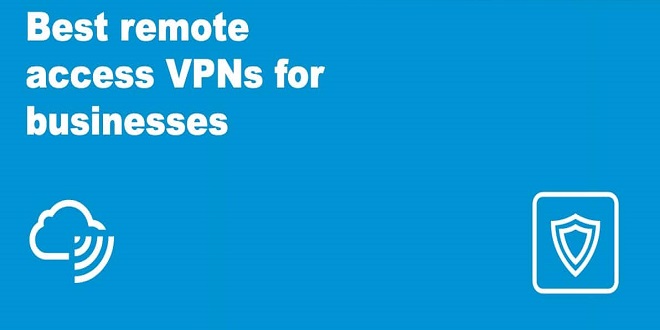What Remote VPN Solution is Right for Your Business?

Cybersecurity is now more important than ever. This is especially true after the coronavirus epidemic. It will only get more important over time. Not only is cybersecurity important for individuals, but also for businesses and organizations. We store so many sensitive data online, transfer money online and leave digital footprints all over the internet.
A cyberthreat, a hack, or breach can cause damage to individuals and businesses in many ways, including reputation loss, financial loss, and leakage of personal information. These problems can be solved with strong and efficient solutions. Virtual Private Networks, or VPNs, are one example. VPN is the most common solution when it comes to cybersecurity. It is used by millions and has proven to be effective.
What about businesses? Although VPNs are primarily used by individuals, companies can also benefit from them. They are widely used in corporate environments. VPNs provide complete security because they allow users to connect securely to the company’s network. We will be explaining how VPNs work and why remote VPN solutions are important for companies.
What’s a Virtual Private Network?
VPN technology allows users to keep their anonymity, safety, security, and anonymity. It converts a public internet connection into an encrypted private network, disguises your Internet Protocol (IP address) and makes it more secure. VPN services provide encrypted connections that make it harder for hackers to track your online activities.
An encrypted connection protects sensitive data and allows remote operation. It also prevents unauthorised persons from monitoring it.
Remote Access VPN
Remote Access VPN is a virtual tunnel interface that allows companies to secure their network by connecting network components to an external device. Remote users can access the network and use it as though they were there. The traffic is encrypted and cannot be accessed or monitored by third parties.
Remote access VPN encrypts all data sent and received by users. This allows remote workers to access data and apps that are stored in company offices or database servers, as well as data they have downloaded. Remote Access VPN consists of two components: A VPN client that is installed on the user’s device and a VPN gateway that is located at the network’s perimeter.
Why you should use a remote access VPN
Remote access VPN is a comprehensive and effective cybersecurity solution that can be used to protect companies from the many pitfalls of work-from-home and hybrid work arrangements. Before we get into the benefits of a VPN, let’s first look at why it is so important in corporate environments.
Offers Enhanced Security
Companies store sensitive data and private information they need to protect. A data breach could cause significant damage to a company and the company could be held responsible. A VPN encrypts all data that is exchanged between employees and the corporate network, and protects data transmission. Remote Access VPN provides a secure authentication process that grants only authorized users access the corporate network.
Remote Access
Remote work models have become the norm and will likely continue to be a part of our daily lives. Remote access is now more important than ever. Remote access VPN allows employees to access corporate data from multiple locations. This provides a secure alternative that allows companies to hire talented people from around the globe.
Encrypts Transmitted Information
Tunneling protocols and data encryption ensure that all data sent is protected regardless of the device or the location. Only authorized connections can access corporate data. Even if an unauthorized person managed to access your information, it would be inaccessible.
Remote Access VPN – Benefits
We have already discussed the reasons why companies need a remote access VPN. Now we will discuss the benefits of this solution. Remote access VPNs offer many benefits, especially in today’s digital workplace.
Geoblocking Content: Some websites or databases are not allowed to interact with your company in certain regions because of geoblocking technology. These restrictions can be bypassed to allow your company to easily connect with customers.
Network Scalability: Using VPNs, companies can quickly connect disparate networks via the open Internet using encrypted routes. This allows companies to grow their network, while keeping it private.
Access Control: VPNs allow users to control their access by authorizing and authenticating them
Network Performance: VPNs offer a variety of speeds to support different functions such as streaming and P2P sharing.
Secure File Sharing: Employees can safely share files between themselves, while also avoiding the risk of disclosing company information to third parties using a VPN.
Remote employees can access corporate data easily and safely using VPNs.
Content filtering: VPNs protect individuals and systems by blocking malicious websites and phishing.
Reliability: A VPN offers the same connection quality to all users, even when processing a large number of simultaneous connections.
Final Notes
In today’s digital world, data protection is crucial. Companies are increasingly concerned about cyberattacks as they can lead to reputational damage and loss of money. With the right tools, companies can protect sensitive data and prevent breaches.
VPNs are the first step in cybersecurity. They have so many benefits. They offer innovative solutions and are constantly improving. They are also less expensive than other cybersecurity solutions and easier to use.
However, not all VPNs are suitable for every company. You should also avoid free VPNs for business.





